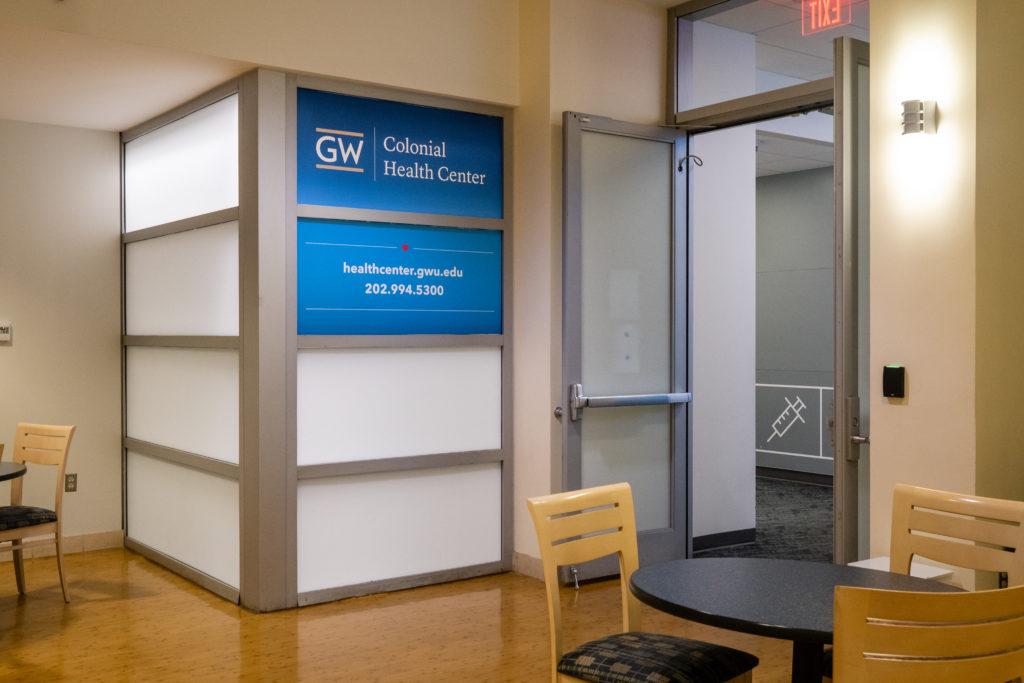Senior Hannah Grosvenor requested counseling and psychiatric services at the Colonial Health Center after she was sexually assaulted in mid-February.
But Grosvenor said she didn’t hear back about a health center appointment until she returned home for spring break, and at that point, the University – along with the health center – was shutting down.
A staff member tried connecting her with at-home treatment options near her home in Iowa, citing D.C. licensing laws that prohibit health services staff from providing counseling services over the phone. But no services could be found in her immediate area, and Grosvenor said she now has no access to counseling resources.
“I just feel like I lost a lot of my safety net at GW, including psychiatry, counseling and in-person meetings with my adviser that made me feel successful,” she said.
The CHC canceled all ongoing counseling appointments late last month, but it will remain open for crisis and emergency walk-in mental health consultations during business hours. Students said losing access to counseling and psychiatric resources worsened their mental health and stress in the wake of the pandemic, forcing them to go without treatments they regularly seek.
Freshman Katelyn Monostori said she stopped her weekly mental health counseling appointments earlier this academic year after her condition improved, but she kept a CHC counselor on call if she needed to resume sessions. Monostori said she lacks the same access to mental health care at home that she did at GW, where she could take advantage of free counseling sessions.
She said adjusting from life at GW to social distancing at home in Virginia Beach has been “isolating” and “difficult,” which makes her wish she still had access to her mental health counselor at the health center.
“You understand that that’s what everyone needs to do, but at the same time it would definitely make it a lot more beneficial to have more resources available,” she said.
While the CHC cannot legally provide health services over the phone, students in search of ongoing counseling can contact CHC staff for a brief consultation about off-campus therapy and treatment options.
Monostori added that weekly appointments with a counselor would give her a sense of “routine,” helping her mitigate her anxiety during the pandemic.
“I definitely think having some sort of access would just help to maintain a schedule and make this whole self-isolation have more normalcy,” Monostori said.
Therapists and psychologists said last month that students should maintain social connections with family and friends and preserve their routine as much as they “safely” can to sustain strong mental health during the pandemic.
A female junior, who requested to remain anonymous to keep her health care information private, said she initially began visiting the CHC as a freshman to receive treatment for her clinical depression, anorexia and bulimia. She said she had since visited the center for counseling at least once every three weeks.
But the student said she is unable to access counseling at her home in Kansas because every therapist’s office she’s contacted is not currently accepting new patients. She said she can still pick up her antidepressant medication from her local pharmacy, but she needs to take her medication in conjunction with in-person counseling for her treatment to be effective.
“Medication is not a cure-all, and in no way does medication have the same improvements that counseling does – they work in tandem,” she said.
She said her depression often prevents her from controlling her negative thoughts and feelings, so she has learned to focus on what aspects of her life she could control, like her schedule. But she said measures officials have taken – like closing residence halls, packing and storing students’ items and canceling counseling – makes her feel that she’s lost her autonomy.
“I understand that they’re doing the best they can to keep us safe, and I am in no way indicting them,” she said. “But I would be remiss if I didn’t include that this is definitely something that does put a strain on your mental health.”
A female first-year student, who requested to remain anonymous to keep her health care information private, said she used to attend monthly psychiatric appointments at the CHC to receive prescriptions for her ADHD medication. The student said she and her psychiatrist plan to continue her once-a-month meetings over the phone.
She said trying to receive her medication has been “frustrating” because her CHC psychiatrist is not licensed to practice in her home state. The student said staff is currently trying to fax her prescription to her local pharmacist, but uncertainty about when and if she will be able to access her medication increased her stress.
The freshman added that she can still speak virtually with her D.C.-based mental health counselor – who is not affiliated with the CHC – every one or two weeks to receive treatment for her ADHD and anxiety through telehealth technology.
“Without that in-person contact, it’s been a lot harder to get everything done and to feel secure in the plan that we had already set up,” she said.





